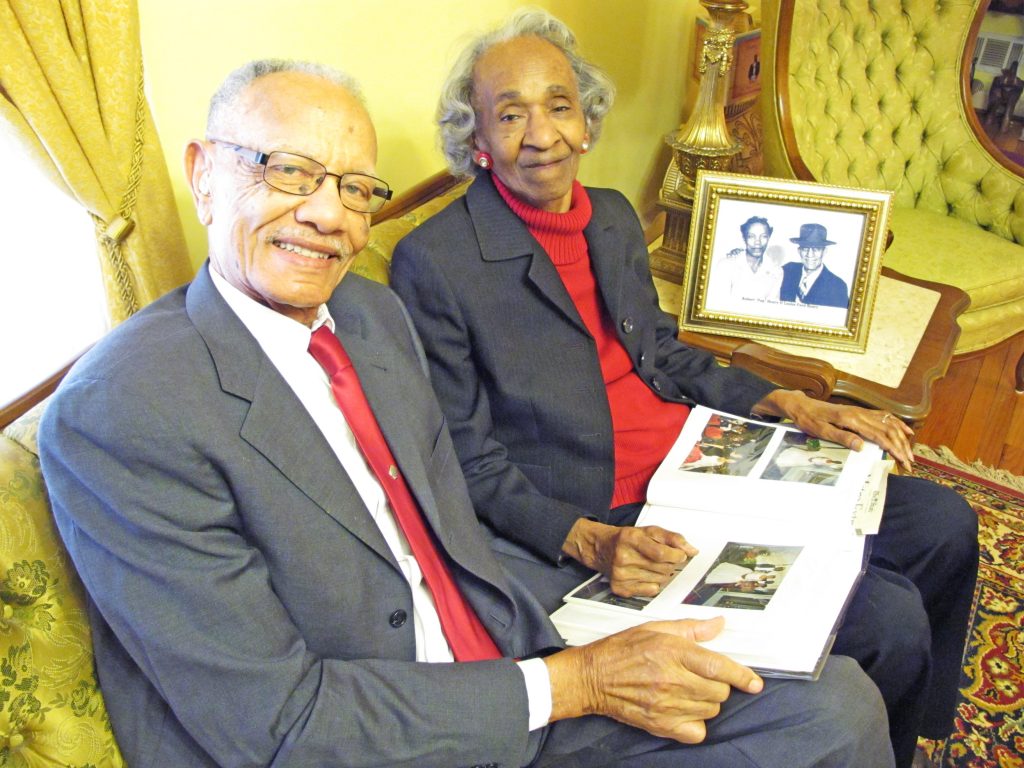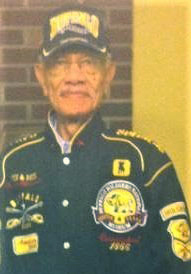
WINNSBORO – When Taft Henry was laid to rest almost three years ago, his friends and acquaintances remembered him as a peaceful man – a good man who volunteered his time to help his community. He was on the hospital board, the county’s election commission and social services board. He was a cub master at Calvary Presbyterian Church, and a life-long member of St. John AME Church where he served as class leader, trustee emeritus, Sunday school teacher and president of the lay organization. He volunteered so faithfully at McCrorey-Listen Elementary that the S. C. School Board Association presented him with the Friend of Education award.

Henry served quietly and conscientiously in these and other volunteer capacities in Fairfield County.
But most people probably didn’t know that before those years of community service, Henry, born and raised in Fairfield County, had served his country as a Buffalo Soldier in the all black 24th Infantry Regiment of the United States Army.
Buffalo Soldiers were established by Congress in 1866 as the first peacetime all-black regiments in the regular U.S. Army. They originally were members of the 10th Cavalry Regiment of the United States Army, formed at Fort Leavenworth, Kansas. Their assignments included border and Indian control, which frequently involved dangerous conflicts.
The Buffalo Soldiers nickname was given to the black cavalry by Native American tribes who encountered the soldiers in the Indian Wars and other skirmishes.
At least one writer credits the name to an 1871 campaign against the Comanches, who marveled at the soldiers’ stamina and trail skills. Others claim the nickname arose from the high regard of American Indians for buffalo that freely roamed the Plains, and drew comparisons to the fighting prowess of the black soldiers, in particular the 10th U.S. Cavalry that crisscrossed Texas, Kansas, New Mexico, Arizona, and the Indian Territory (now Oklahoma), campaigning against the Cheyenne, Kiowa, Comanche, and Apache tribes.
The buffalo soldiers served the United States with distinction, though they contended with prejudice both in the Army and on the frontier. Many towns on the frontier were segregated, and black soldiers were frequently the targets of slurs, assaults, and even shootings. Still, the buffalo soldiers earned accolades for their discipline and precision.
“The black regiments probably won more Medals of Honor for the Indian campaigns than the white regiments did,” said Richard Rattenbury, curator of history at the National Cowboy & Western Heritage Museum in Oklahoma City. “They also had some of the lowest desertion rates in the Army, and some of the highest re-enlistment rates. They were known for their steady character.”
The term Buffalo Soldiers eventually became synonymous with all of the African-American regiments formed in 1866: the 9th and 10th Cavalry Regiment and the 25th and 38th Infantry Regiments.
And the proud thread of identity associated with the original Buffalo Soldiers continued through the years in the black regiments.
In 1869, the 38th and 41st Regiments were combined into a new single all black 24th Infantry Regiment, still nicknamed Buffalo Soldiers, until it was deactivated in 1951 during the Korean conflict. The deactivation resulted from President Truman’s executive order that eliminated racial segregation in the military.
Henry enlisted in the Army’s 24th infantry regiment in 1946, at the end of World War II, a time when black Army soldiers were relegated primarily to support roles. By the beginning of the Korean conflict in 1950, however, Henry’s 24th regiment was in the first of a group of fighting units that were sent to South Korea where they were recognized as gallant fighters, according to family members.
For his sacrifice, Henry received the Combat Infantry Badge and other Korean conflict medals.
Overlooked for decades, the story of the buffalo soldiers enjoyed a rebirth in the 1960s with scholarly research and depictions in movies and television. A cable-television movie in 1997 on TNT further solidified the legend of buffalo soldiers.
While Henry was fighting in Korea, his high school sweetheart, Evelyn, was back home earning a bachelor’s degree in education from the University of South Carolina. They maintained a long-distance engagement for three years before marrying in 1952 at her parents’ home.
After their marriage, Henry’s military career took them to see the world together. They were stationed in Virginia and then Germany before Henry retired in l968, and the couple returned to Fairfield County. Evelyn taught at McCrorey-Liston Elementary School and eventually retired as the school’s principal after a 30-year education career.
“We had a wonderful life together,” Evelyn, who died last year, said of the couple’s 68-year marriage. “We had a lot of good memories.”
One of Henry’s most cherished memories over the years, however, Evelyn said, was having been a Buffalo Soldier, a distinction he was uniquely proud of.
“He didn’t talk much about it, but when he did, I could tell it meant so much to him,” she said.
In honor of Henry’s service as a Buffalo Soldier, the National Association of Buffalo Soldiers and Troopers Motorcycle Club, Columbia S.C. Chapter, escorted Henry to his final resting place in the St. John A.M.E. Church cemetery where his friends and family bade one of the last Buffalo Soldiers in America farewell.












It was a honor to know and be friends with the Henry’s. They both were honorable people. The world needs more of the Henry’s in it.